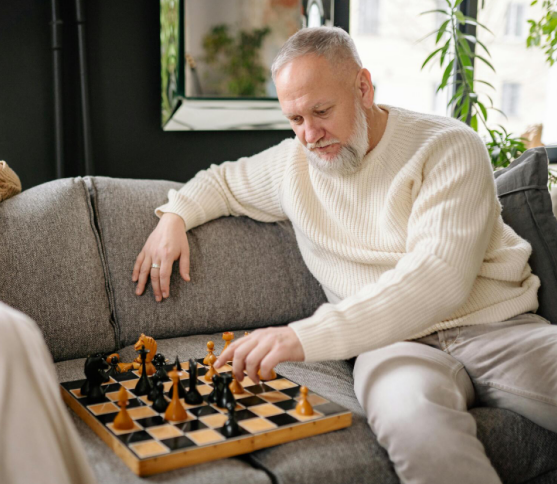Health
How Memory Programs Improve Cognitive Health in Seniors

As people grow older, it’s normal for memory and thinking skills to change. But that doesn’t mean there’s nothing we can do about it. Memory programs are one of the best ways to help seniors stay mentally sharp, active, and independent.
These programs are designed to keep the brain busy, improve focus, and even slow down memory loss. Read on.
Why Brain Health Matters in Aging
Cognitive health-how well we think, learn, and remember-is a big part of overall health for seniors. When the brain stays active, it’s easier to manage daily tasks, enjoy hobbies, and stay independent.
Poor brain health can lead to confusion, frustration, and even accidents. That’s why memory programs are so important: they help seniors stay in control of their lives.
Fun and Simple Brain Activities
Memory programs often include fun and easy-to-follow activities. These might be word games, puzzles, music, reading, storytelling, or even group discussions.
Each activity helps a different part of the brain-like memory, attention, or problem-solving. By doing these tasks often, the brain gets stronger and stays more active. Just like muscles, our brains need exercise too!
Slowing Down Memory Loss
One of the biggest benefits of memory programs is their ability to slow down memory loss. They are especially helpful for seniors with early signs of memory problems, like mild cognitive impairment or the beginning stages of Alzheimer’s.
These programs help the brain stay flexible and adjust to changes. This brain flexibility-called “plasticity”-means the brain can keep learning and growing, even in old age. Check out specialized memory care in Durham to learn more.
Better Mood and Social Connection
Memory programs also help with emotional health. Many of them are done in group settings, which gives seniors the chance to connect with others. Socializing helps reduce feelings of loneliness and depression, which are common in older adults.
When seniors feel good emotionally, it also supports their brain health. Simply spending time with others and having fun can make a big difference.
Tailored for Every Person
One great thing about memory programs is that they can be adjusted for each person’s needs. Some seniors may enjoy brain teasers and memory games, while others may respond better to music or art.
Even seniors with more serious memory issues can benefit from simple, hands-on activities. These programs can be as easy or as challenging as needed, so everyone can join in and benefit.
Using Technology to Help
Today, many memory programs also include technology. There are apps and online games made just for brain training. These tools can be used on tablets, phones, or computers.
They keep track of progress and adjust the difficulty based on the user’s skill level. This way, seniors and caregivers can see how well the program is working and make changes if needed.
A Smart Way to Age Well
In the end, memory programs do much more than just help with memory. They offer a fun, social, and meaningful way to stay sharp and feel good.
These programs help seniors enjoy life more and stay active for longer. As more people learn about the importance of brain health, memory programs will continue to be a smart and helpful part of aging well.
If you want to read more articles, visit our blog.
-

 Celebrity1 year ago
Celebrity1 year agoWho Is Jennifer Rauchet?: All You Need To Know About Pete Hegseth’s Wife
-

 Celebrity1 year ago
Celebrity1 year agoWho Is Mindy Jennings?: All You Need To Know About Ken Jennings Wife
-

 Celebrity1 year ago
Celebrity1 year agoWho Is Enrica Cenzatti?: The Untold Story of Andrea Bocelli’s Ex-Wife
-

 Celebrity1 year ago
Celebrity1 year agoWho Is Klarissa Munz: The Untold Story of Freddie Highmore’s Wife
















